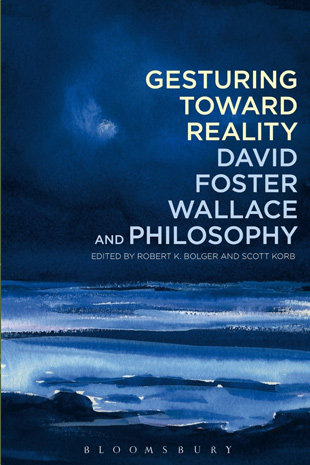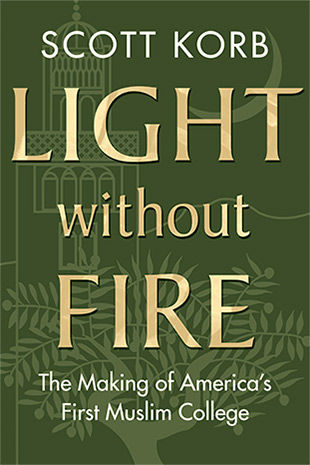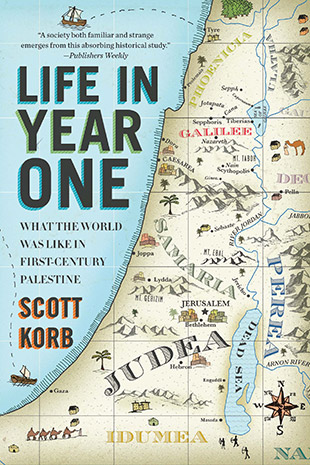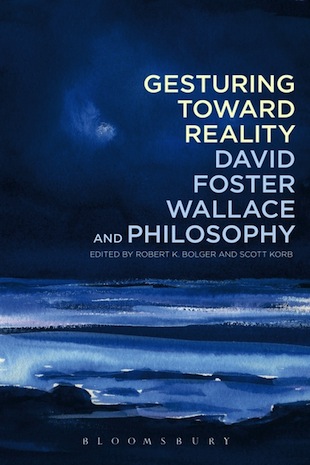“—Wallace’s deeply influential postmodern pragmatism … was the distillation of a lifetime of urgent and rigorous philosophical engagement. Unfortunately, that deeply informed background is often obscured by the white light of his intimate, inimitable voice. Gesturing Toward Reality refracts that light to reveal the colorful spectrum of his sources. The essays assembled here are as lively as they are entertaining, and provide an accessible introduction to some of the most complex ideas in Wallace’s already challenging oeuvre.
”
Marshall Boswell, author of Understanding David Foster Wallace and co-editor of David Foster Wallace and “The Long Thing”
“—Gesturing Toward Reality is the first collection of pieces on David Foster Wallace to tackle head-on one of the things that make his work so important to so many: the power of his thinking. Approaching Wallace’s thinking from a variety of angles, the philosophers and literary critics in this volume work hard (and to great effect) to tease out Wallace’s ideas as they appear in his fiction and nonfiction, to explore how he came to them from his education and experience, how he expressed them through language, and what they meant for him and might continue to mean to us.
”
Samuel Cohen, co-editor of The Legacy of David Foster Wallace
“—This collection has moved from the very interesting to must have.
”
Nick Maniatis, The Howling Fantods
A new collection of essays about David Foster Wallace and Philosophy
Asked in 2006 about the philosophical nature of his fiction, the late American writer David Foster Wallace replied, “If some people read my fiction and see it as fundamentally about philosophical ideas, what it probably means is that these are pieces where the characters are not as alive and interesting as I meant them to be.”
Gesturing Toward Reality looks into this quality of Wallace’s work—when the writer dons the philosopher’s cap—and sees something else. With essays offering a careful perusal of Wallace's extensive and heavily annotated self-help library, re-considerations of Wittgenstein’s influence on his fiction, and serious explorations into the moral and spiritual landscape where Wallace lived and wrote, this collection offers a perspective on Wallace that even he was not always ready to see. Since so much has been said in specifically literary circles about Wallace’s philosophical acumen, it seems natural to have those with an interest in both philosophy and Wallace's writing address how these two areas come together.
Light Without Fire
The first extended look into the nation’s first Muslim institution of higher education, Zaytuna College.
Light Without Fire closely follows the inaugural class of Zaytuna College, the nation’s first four-year Muslim college, whose mission is to establish a thoroughly American, academically rigorous, and traditional indigenous Islam. Korb offers portraits of the school’s founders, Shaykh Hamza Yusuf and Imam Zaid Shakir, arguably the two most influential leaders in American Islam. Along the way, Korb introduces us to Zaytuna’s students, young American Muslims of all stripes, who love their teachers in ways college students typically don’t and whose stories, told here for the first time, signal the future of Islam in this country. It’s no exaggeration to say that here, at Zaytuna, are tomorrow’s Muslim leaders.
Life in Year One
What was it like to live in the time of Jesus?
What did people eat? Whom did they marry? How did they keep themselves clean? What did their cities and towns look like? What did they believe?
The answers, it turns out, are surprising. This simple question is not so simple after all. With a historian's insight and a reporter's curiosity, Scott Korb gives us a backstage pass to the unexpected and sometimes down-and-dirty truth about what everyday life was like in first-century Palestine, that tumultuous era when the Roman Empire was at its zenith and a new religion-Christianity-was born.
The Faith Between Us
A religious “coming out” story by two young believers--one Catholic and one Jewish, with an introduction by Freakonomics coauthor Stephen J. Dubner.
Scott Korb and Peter Bebergal, two young progressives, share a secret: They believe in God. One is a former wannabe Catholic priest, the other a failed Jewish mystic, and they formed a friendship that's shaped by their common belief. In The Faith Between Us, they engage in a dialogue that ranges widely, from the mundane to the divine. They discuss finding religious meaning in their secular worlds, the moral implications of decisions both personal and political, their different religious cultures, and how their lives have been shaped by the pursuit of an authentic, livable faith. Both a spiritual memoir and an examination of contemporary religion as it's played out in unconventional ways, The Faith Between Us offers an alternative vision of faith in America, one that is equally irreverent and devout, ironic and earnest. For everyone interested in a modern take on keeping faith—and in reclaiming religion from the fundamentalists and literalists who have co-opted it for the right and those on the left who dismiss its redemptive power—The Faith Between Us will be an engaging and thought-provoking read.
The Harriet Jacobs Family Papers: 2 Vols
Although millions of African American women were held in bondage over the 250 years that slavery was legal in the United States, Harriet Jacobs (1813-97) is the only one known to have left papers testifying to her life. Her autobiography, Incidents in the Life of a Slave Girl, holds a central place in the canon of American literature as the most important slave narrative by an African American woman
Gesturing Toward Reality: David Foster Wallace and Philosophy
Asked in 2006 about the philosophical nature of his fiction, the late American writer David Foster Wallace replied, “If some people read my fiction and see it as fundamentally about philosophical ideas, what it probably means is that these are pieces where the charaters are not as alive and interesting as I meant them to be.”
Gesturing Toward Reality looks into this quality of Wallace’s work—when the writer dons the philosopher’s cap—and sees something else. With essays offering a careful perusal of Wallace’s extensive and heavily annotated self-help library, reconsiderations of Wittgenstein’s influence on his fiction, and serious explorations into the moral and spiritual landscape where Wallace lived and wrote, this collection offers a perspective on Wallace that even he was not always ready to see. Since so much has been said in specifically literary circles about Wallace's philosophical acumen, it seems natural to have those with an interest in both philosophy and Wallace’s writing address how these two areas come together.
Co-edited with Robert K. Bolger.





